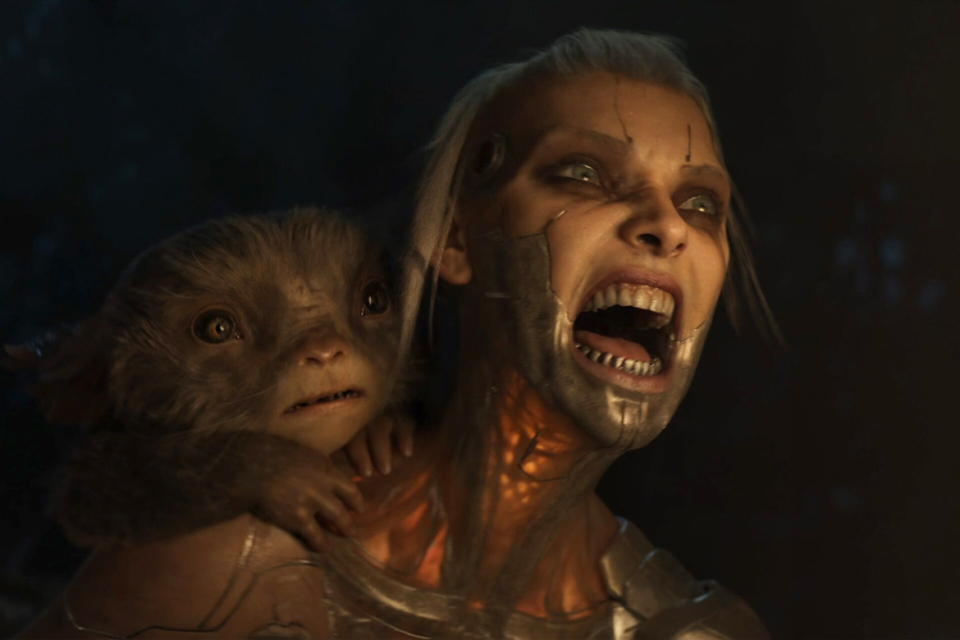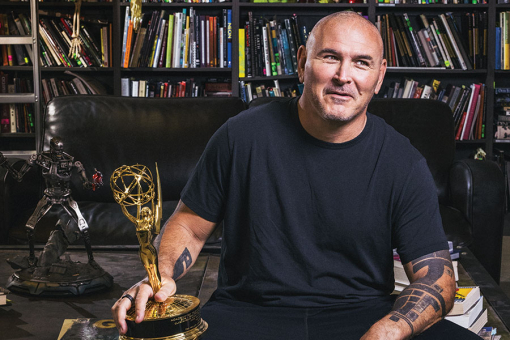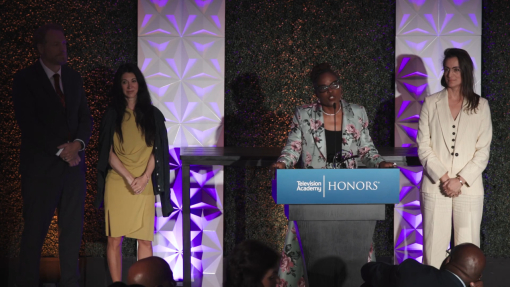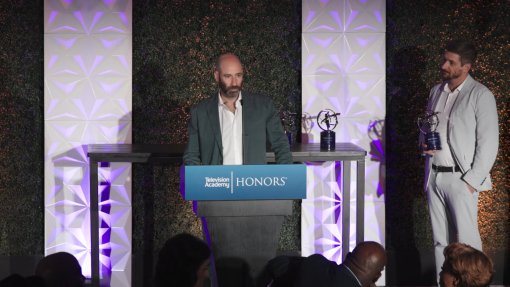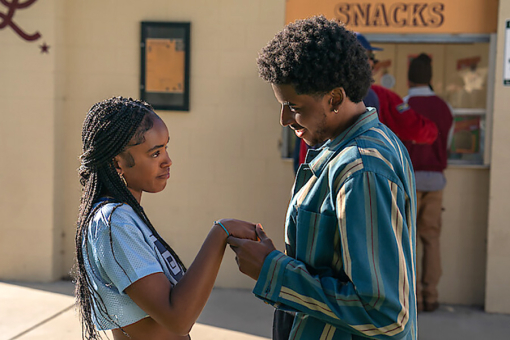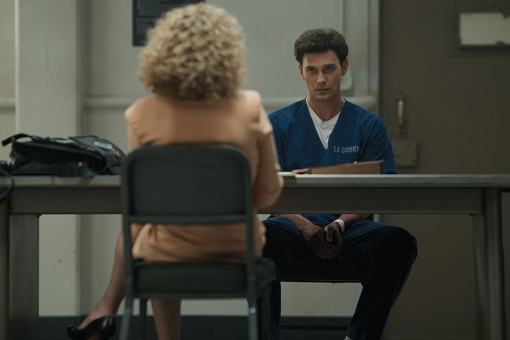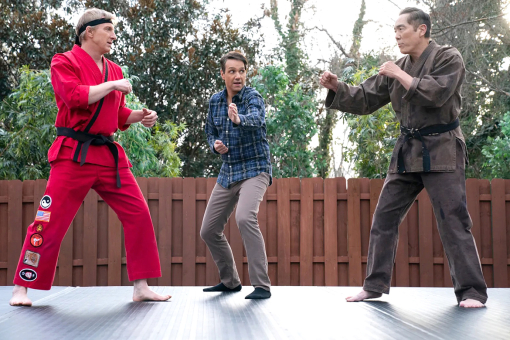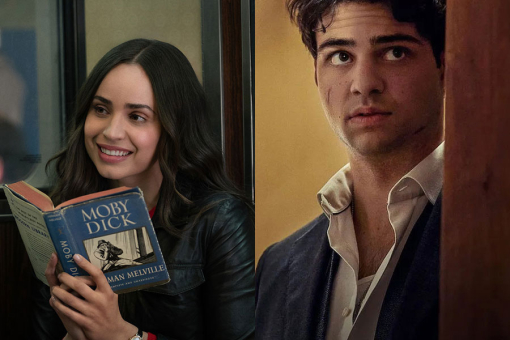Sit back, relax and marvel at Jennifer Yuh Nelson’s impressive workload.
A story artist, character designer, illustrator and film and television director on the job since 1998, Yuh was the second woman ever nominated for an Academy Award for Best Animated Feature by way of 2011’s Kung Fu Panda 2. The project also made her the first woman to solo-direct a major Hollywood animated feature; she did the third installment as well. "Animation is a very labor intensive and difficult process," she says. "It’s crazy miraculous that anything gets made ever!"
She took on one of her biggest challenges to date as the supervising director for Volume IV of Love, Death + Robots. The edgy animated anthology series, premiering May 15 on Netflix, features 10 provocative shorts that showcases a mix of horror, sci-fi, humor and music in various visual styles. Individual studios produce the episodes; creator Tim Miller and David Fincher have served as executive producers since the series’ 2019 debut.
"My title means nothing because every company uses it differently," explains the soft-spoken Nelson, a native of South Korea. "But basically, I’m the umbrella over all the directors and studios as far as making sure they are able to do these shorts successfully and beautifully at the same time."
Nelson, a two-time Emmy winner in the Outstanding Short Form Animated Program category for previous seasons of Love, Death + Robots, even directed the "Spider Rose" episode for good measure. Set in a cyberpunk universe, it centers on a grieving female Mechanist who makes a pet out of an alien creature (named “Nosey”) and avenges the assassin that killed her husband. All in 14 minutes flat. "It’s a very precious story," she adds.
A week before the premiere, Nelson talked to The Television Academy about love, death, robots and more.
Television Academy: How do you determine the format and style of an episode?
Jennifer Yuh Nelson: The stories definitely come first. Some of them are chosen from the stories that Tim Miller has read over many years; sometimes new ones come in from authors that Tim has talked to and haven’t been published yet. The reason why we use these short stories is we know that they work and have already really great foundations. At the same time, we’re matchmaking directors and studios and techniques. So if we have these two perfect stories that we absolutely must have, we’ll decide that one should be done in stop-motion and the other in a completely different style. There's a mix of everything.
What’s the hardest style to pull off?
We’re often dealing with styles that haven't been done before — and sometimes there’s a reason for that. But the reason why we choose these styles is because often these directors or studios are coming to us with things that they’re really, really passionate about and they want to pioneer it. We want to reinforce and encourage that innovation. It's exciting for people to see something they haven't seen before.
You’re probably not allowed to play favorites, but which of these new episodes really excite you?
One is "400 Boys." When I read the story, I was like, "How is this going to happen?" But Robert Valley is such an amazingly talented and visual director, and he found a way of allowing you into this weird world where these gangs are fighting. The end scene is amazing. The other one I really enjoy is "How Zeke Got Religion." I love 2D animation, and this was some of the best hand-drawn animation I’ve seen in a very long time. You could teach a class on it.
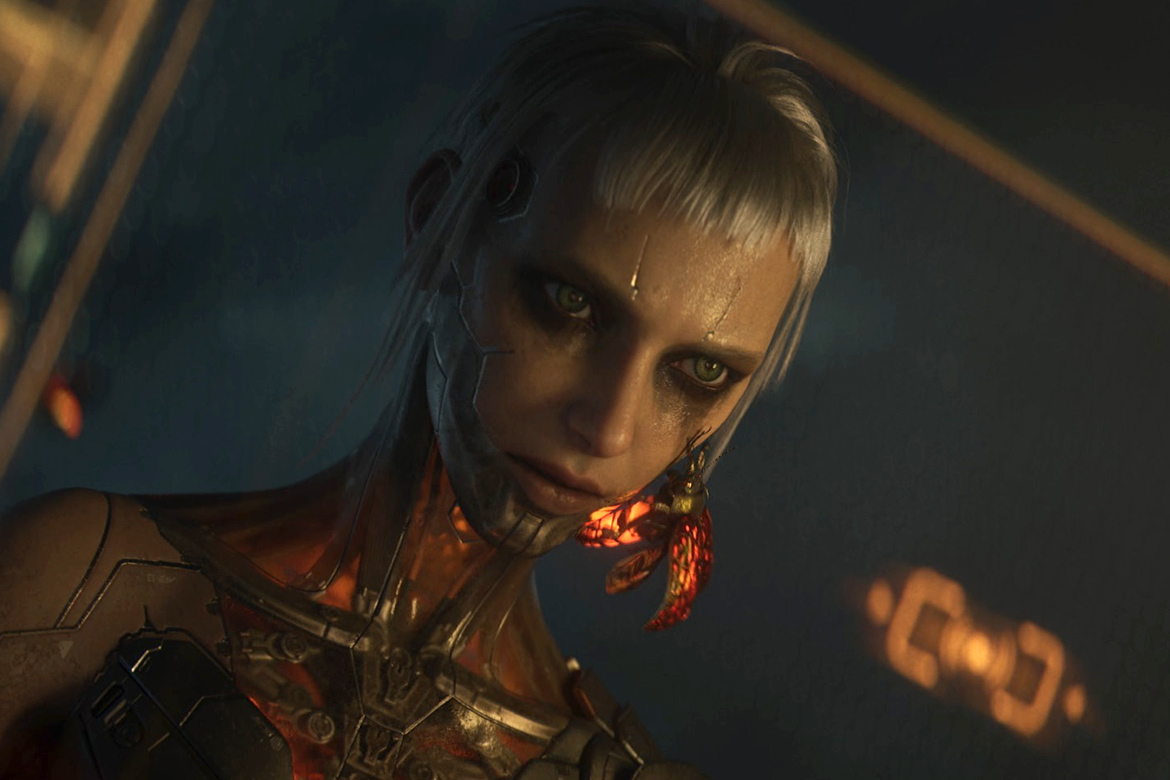 Photo credit: Netflix
Photo credit: Netflix
Why did you choose to direct "Spider Rose"?
I was reuniting with the same crew that made [Volume II’s] "Pop Squad," so that was a real draw. It was also such a lush emotional story. [Rose is] getting over her grief, then she meets her empathy pet — who’s this ugly and cute little thing. There's this moment where you see someone essentially take down the walls that she's built through her grief, and then connect with something. Trying to make sure that connection comes across was an interesting challenge.
Considering that you cut your teeth on feature-length productions, how challenging is to distill a narrative like this down to fourteen minutes?
It's a little bit like doing poetry because you need to make sure every bit of it is meaningful. You have to be very efficient and clear about how you communicate. So I think it’s a great discipline to do shorts because it makes you very agile about how you’re communicating with your audience. Features are its own thing and a massive, longer process. Shorts allow you to be nimble, weird and experimental.
You directed the feature-length movie The Darkest Minds. Are you tempted to direct a live-action short?
We have a live-action episode [“Golgotha”] in this season! It’s directed by Tim Miller. We got to spend some time on the beach for that one.
Lastly, what’s it like to collaborate with Tim and David Fincher? They direct, too, so they’re obviously hands-on.
This show is Tim's baby! Well, it’s both of theirs, but [it’s] specifically Tim's baby because a lot of the stories are based on ones that he has read over the years and stayed in his memory. Tim and David were trying to pitch this for almost 20 years until it got picked up by Netflix. This is a precious show for them. And I think that passion — and that drive to make sure this show is excellent — affects everyone. It makes everyone want to try harder.
This interview has been edited for length and clarity.
Love, Death + Robots is now streaming on Netflix.

